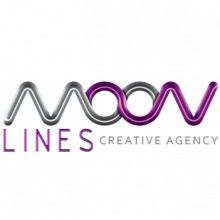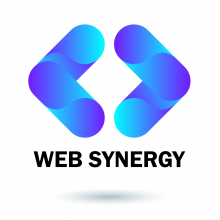
There are 16 Companies in Lebanon
that provide Flutter Development Services!
Lebanon aims to position itself as a strategic hub in the Middle East and North Africa by becoming one of the top-performing countries in the region in terms of datacom infrastructure and IT business environment.
Discover Top IT Companies in Lebanon specialized in Flutter and other related services. Find the best IT service providers for your projects.
Flutter is an open-source UI (User Interface) framework developed by Google for building natively compiled applications for mobile, web, and desktop from a single codebase.
It was officially introduced by Google in May 2017, although its development began earlier as an internal project named "Sky." It aimed to address challenges in cross-platform mobile app development by providing a consistent and high-performance framework for building native-like apps on iOS, Android, and other platforms. Flutter has since gained significant traction and popularity in the developer community.
Handpicked companies • No obligation to hire • 100% risk-free
Featured Companies in Lebanon
This month, the following Flutter Development companies managed to provide an outstanding service and support. It's worth taking a look.
Explore Top Flutter Development Companies in Lebanon
Global Digital Agency catering for clients Beirut, UAE, Qatar, Iraq, KSA, Jordan, and UK. We're experts in E-Com, Digital Marketing and Automation.
Services:
Professional Software Engineering.
Google Partner agency, delivering marketing that makes money through effective ads on Google, Meta & other channels. Sharp websites and AI Automation.
Services:
Designer's ID is an Award-winning Web Design, Development, Marketing firm with full-service global capabilities.
Services:
Cloudlinks.ai empowers businesses with innovative SaaS and AI-integrated ERP cloud solutions for seamless digital transformation.
For over 13 years, we have been developing digital solutions for companies looking to scale up their business and gain greater visibility online.

Zouq Mosbeh, Lebanon Head office in: Lebanon
We turn ideas into great digital products, through agile design & strategic thinking.
Services:
ETE Services is a boutique IT firm that provides end to end and bespoke solutions, Mobile app and Webapp services, to startups and large organizations
Experience seamless collaboration and achieve your software development goals with our dedicated team of exceptional developers.
Services:
We engineer digital products people love to use.
Services:
Web and mobile apps development
Filter Flutter Development Companies in Lebanon by Cities
Find the right tech company near you or from a specific city. Some of the best companies might be located in smaller cities.
Find more Flutter Development companies around the world
TechBehemoths is the world's most advanced and user-friendly platform to match IT Companies with real clients without hustle.
The IT Industry in Lebanon: Companies, Insights & Data
Lebanon aims to position itself as a strategic hub in the Middle East and North Africa by becoming one of the top-performing countries in the region in terms of datacoms infrastructure and IT business environment.
The results of the Lebanese Innovation Survey concerning ICTs indicate a very dynamic portion of the entrepreneurial activities, with strong export orientation, including Gulf countries, and rather young personnel, indicating that the performance of the Lebanese ICT Small and medium-sized enterprises (SMEs) depends largely on their leader.
Why You Should Work With Lebanon IT Companies
Low prices and experienced professionals are the main reasons why Lebanon managed to attract direct foreign investments from international companies and organizations. Since the country has focused a lot on BPO services, it may be challenging for locals to establish their own IT and digital companies in a country with a poorly developed IT industry.
At the same time, Kaysar Daou from Leoceros relates that Lebanon has a highly educated and skilled workforce, including in the IT sector. The country also has a strategic location. Its potential lies within the talented and resilient minds that are enduring the toughest of challenges. And unfortunately for the Lebanese, but luckily for IT service seekers, the Lebanese workforce is considered cheaper than others due to the economic crisis. However, political instability and economic challenges, such as the lack of access to foreign currency and high inflation rates, may deter international IT companies from investing in the country.
What You Should Pay Attention to When Working With Lebanese IT Companies
The Lebanese economy is often described as open and liberal with minimal state intervention. This was always considered an advantage since the private sector has to survive and prosper despite the lack of assistance from the public sector. As indicated by Chakour, Lebanese people do not rely on the government to provide for their well-being. The Lebanese government’s actions are weak for the following two main reasons.
Disabled by those issues, the Lebanese state has a relatively weak capacity. Public actions in favor of research and innovation have been very timidly developed. There is no ministry in charge of national S&T policymaking in Lebanon, or a clear national strategy for technology. The Lebanese ICT policy was limited in terms of government usage and priority. According to the World Economic Forum, Lebanon is ranked 140 out of 142 countries in terms of government prioritization of ICT. In the same report, Lebanon was ranked 141 out of 142 in the importance of ICT to government vision and government procurement of advanced technologies. In 2024, the Global Innovation Index positioned Lebanon in the 94th position out of 133 economies, showing an improvement and optimization of the ICT sector.
In addition, when working with a local IT company from Lebanon, others should be aware of the potential challenges posed by the economic crisis and political instability in the country. Communication and transparency are key to managing expectations and ensuring the success of the project. Additionally, it is important to work with a reputable company that has a proven track record and strong references.
How Reliable Are Lebanese IT Companies
In terms of reliability, Lebanese IT companies benefit from foreign companies’ reputations. 86% of all IT companies from Lebanon are multinational or international agencies and investors aiming to attract a low-cost and decent-quality workforce.
The main investors in the Lebanese IT industry are French tech companies, which are extending their network and influence in North Africa and the Mediterranean regions.
How Does the Lebanese IT Industry Relate to the Region?
The Software sector is recognized as a major part of the ICT industry and a key driving force for Lebanon’s economy. It is a fast-growing sector with an estimated market size of $610.65 million in 2025. In 2025, the ICT sector contributed $7 billion to Lebanon’s GDP. Furthermore, Lebanon is emerging as a leading exporter of software development and services in the region. Comparatively, to other Lebanese sectors, the software sector is distinguished by its dynamism, innovation, and its good capacity for identifying future technologies.
Overall, while Lebanon's IT industry may not be as large or developed as some of its neighbors, it has a strong reputation for innovation and creativity. However, the challenges posed by the economic and political climate in the country can make it difficult for companies to operate and grow.
How is the Business Environment in Lebanon?
According to Kaysar Daou from Leoceros, a leading IT company in Lebanon, the country is considered a small hub in the Middle East with a diverse economy, ranging from agriculture to services. However, the country has been facing economic and political challenges, including a major financial crisis, since 2019. This has led to high inflation rates, limited access to foreign currency, and a drop in purchasing power. The business environment in Lebanon is currently challenging, with many businesses struggling to survive.
In addition, Kaysar relates that based on his knowledge and experience, the business climate for opening a new IT company as a local entrepreneur in Lebanon can be challenging due to the economic crisis and limited access to foreign currency. However, the highly skilled workforce and supportive ecosystem for startups can be advantages for local entrepreneurs.
The World Bank reported that Lebanon's GDP contracted by around 40% between 2017 and 2021, highlighting the severity of the economic downturn. Additionally, corruption, inadequate infrastructure, and a challenging regulatory environment further hampered business growth and investor confidence during this period. In 2025, the World Bank expects a 4.7% GDP growth powered by reform progress, tourism recovery, and increased consumption.
Beirut and Tripoli - Named the Best Places in Lebanon for IT Businesses
Kaysar adds on this topic that two of the best cities for IT companies in Lebanon are Beirut and Tripoli. Beirut is the capital and largest city, with a vibrant startup ecosystem and access to a skilled workforce. Tripoli is the second-largest city and has been developing as a hub for IT companies, with a growing number of startups and a lower cost of living compared to Beirut.
Despite All, Lebanon's Talent Pool is Described as Skilled and Educated.
The local talent pool in Lebanon is highly educated and skilled in various IT fields, including software development, graphic design, and digital marketing. Many young people are attracted to the IT industry due to its potential for innovation and entrepreneurship. However, the economic crisis has led to a brain drain, with many skilled professionals leaving the country in search of better opportunities.
This article was created together with prominent figures and professionals coming from reputable Lebanese IT companies. Special credits: Kaysar Daou.
What is Flutter and what are its benefits for your projects?
Flutter is an open-source UI (User Interface) framework developed by Google for building natively compiled applications for mobile, web, and desktop from a single codebase.
It was officially introduced by Google in May 2017, although its development began earlier as an internal project named "Sky." It aimed to address challenges in cross-platform mobile app development by providing a consistent and high-performance framework for building native-like apps on iOS, Android, and other platforms. Flutter has since gained significant traction and popularity in the developer community.
Flutter has seen rapid adoption, thanks to its key advantages, such as a single codebase for multiple platforms, a rich set of pre-designed widgets, and fast development cycles. It has found use in various industries, including mobile app development, web development, desktop applications, and even embedded systems. Some notable apps developed with Flutter include Alibaba, Google Ads, eBay Motors, and more. Its usage continues to grow, and it has a strong developer community and ecosystem.
Flutter is versatile and suitable for a wide range of projects:
- Mobile Apps: Flutter is commonly used for developing mobile applications, including consumer apps, business apps, e-commerce apps, social media platforms, and more. It provides a native-like experience on both Android and iOS.
- Web Apps: Flutter can be used to build web applications, allowing developers to target browsers as well. This is still in the experimental phase (as of my knowledge cutoff date), but it shows promise for building responsive web interfaces.
- Desktop Applications: Flutter supports desktop platforms like Windows, macOS, and Linux. Developers can create desktop applications for various purposes, including productivity tools and utilities.
- Embedded Systems: Flutter can be used to create user interfaces for embedded systems and IoT (Internet of Things) devices, providing a consistent look and feel across different hardware.
- Custom UI Components: Flutter is often used to build custom UI components and widgets that can be integrated into larger applications, providing a cohesive design language.
Hourly rates for Flutter developers can vary significantly based on factors like location, experience, project complexity, and demand. On average, Flutter developers may charge anywhere from $25 to $150 or more per hour. Rates tend to be higher in regions with a higher cost of living, such as North America and Western Europe, and lower in regions with lower living costs, such as Asia and Eastern Europe.
It's important to note that more experienced and specialized Flutter developers with a strong track record may charge higher rates. Additionally, some developers or development agencies may offer fixed-price contracts for specific Flutter projects, which can vary widely based on the project's scope and requirements.
When hiring Flutter developers, it's essential to consider factors like their expertise, portfolio, and the complexity of your project. Getting multiple quotes and conducting interviews can help you determine a reasonable rate and find the right developer or team for your specific needs.
We have also written an extensive research of what skills you should be looking for when hiring Flutter developers.














